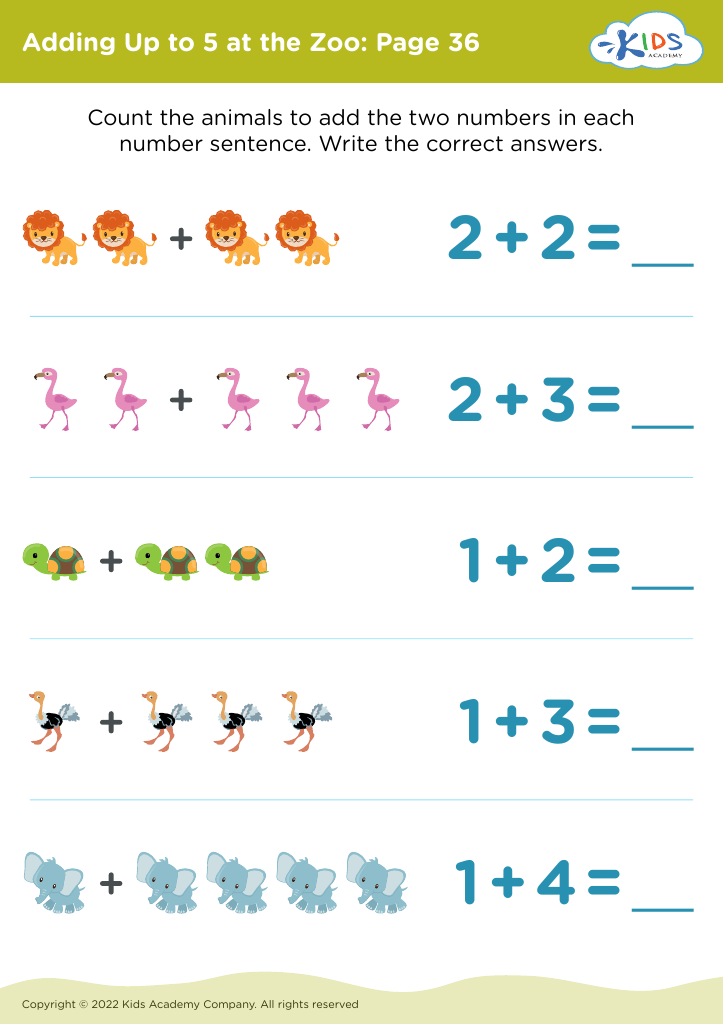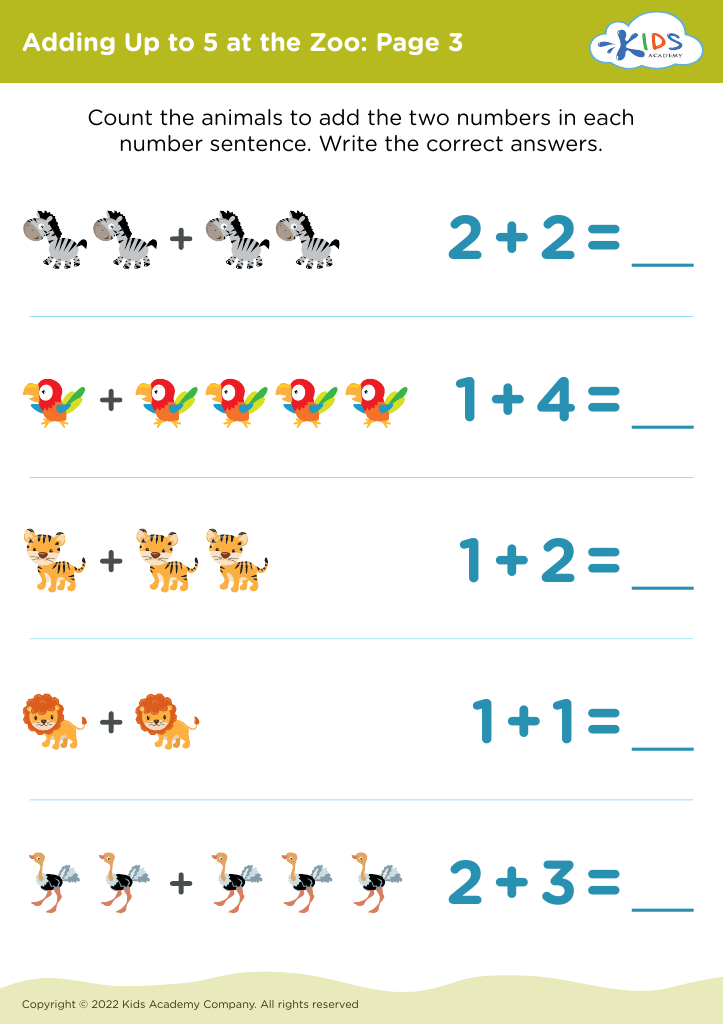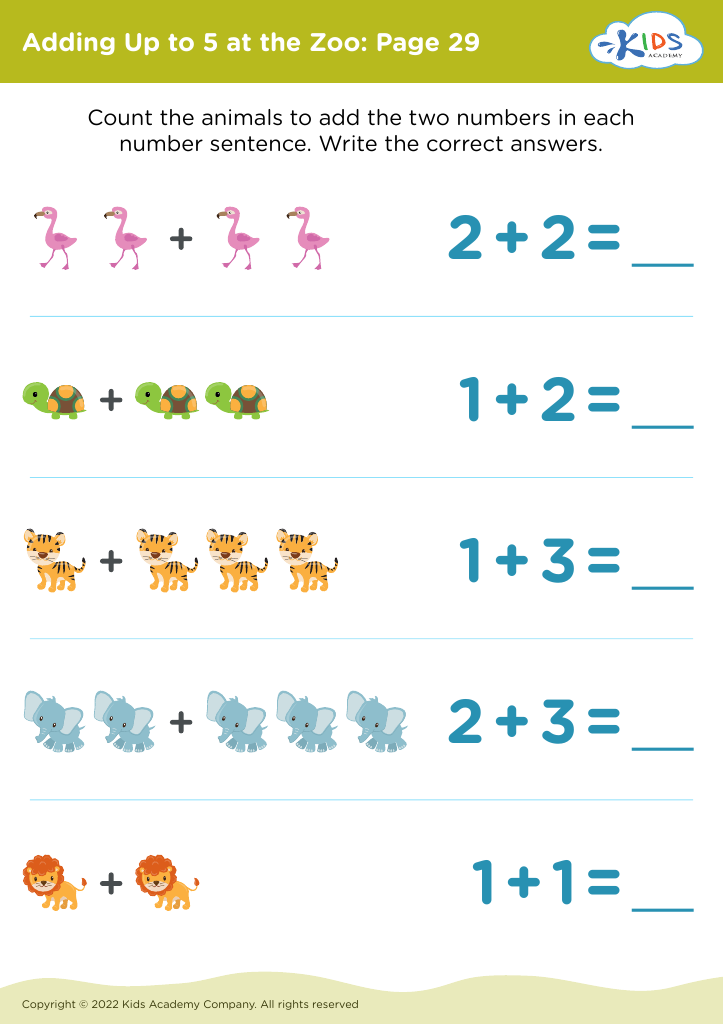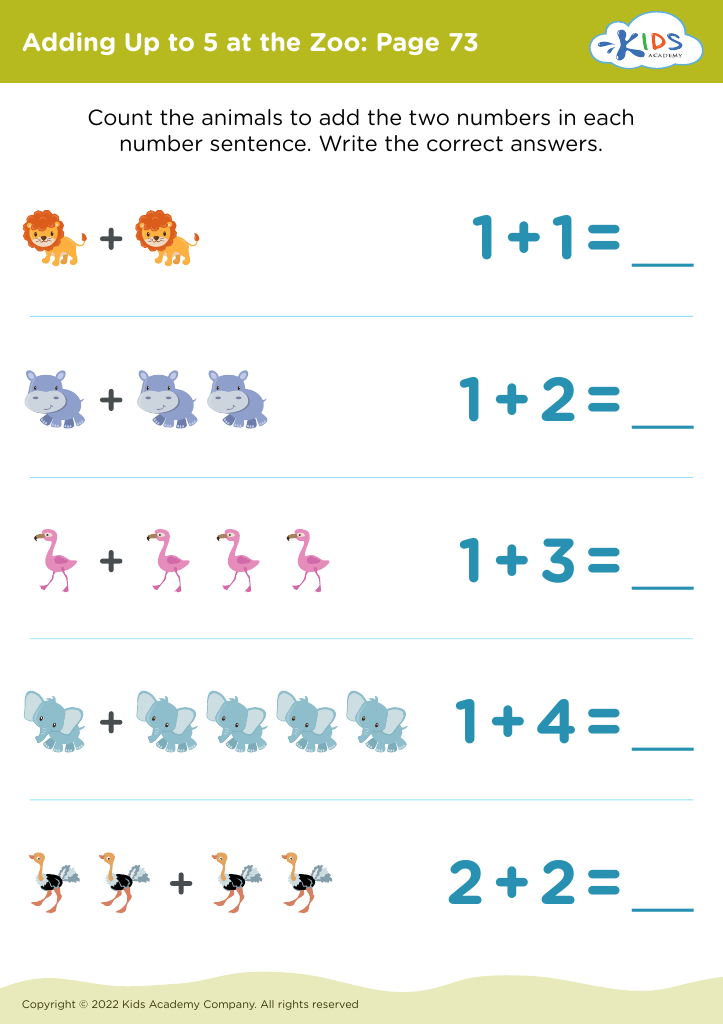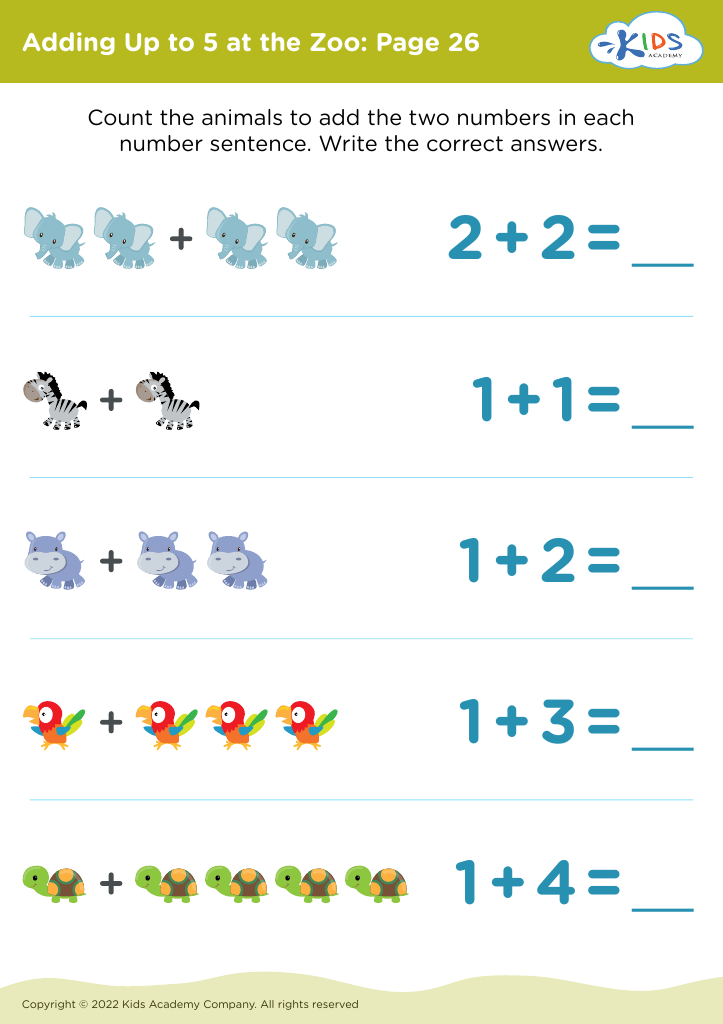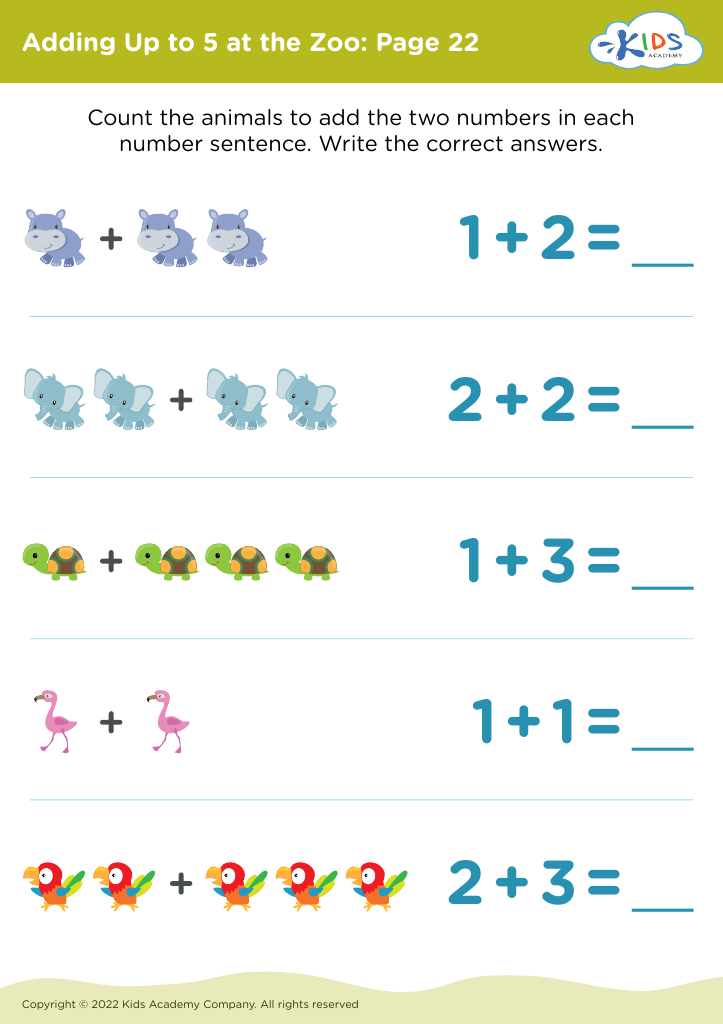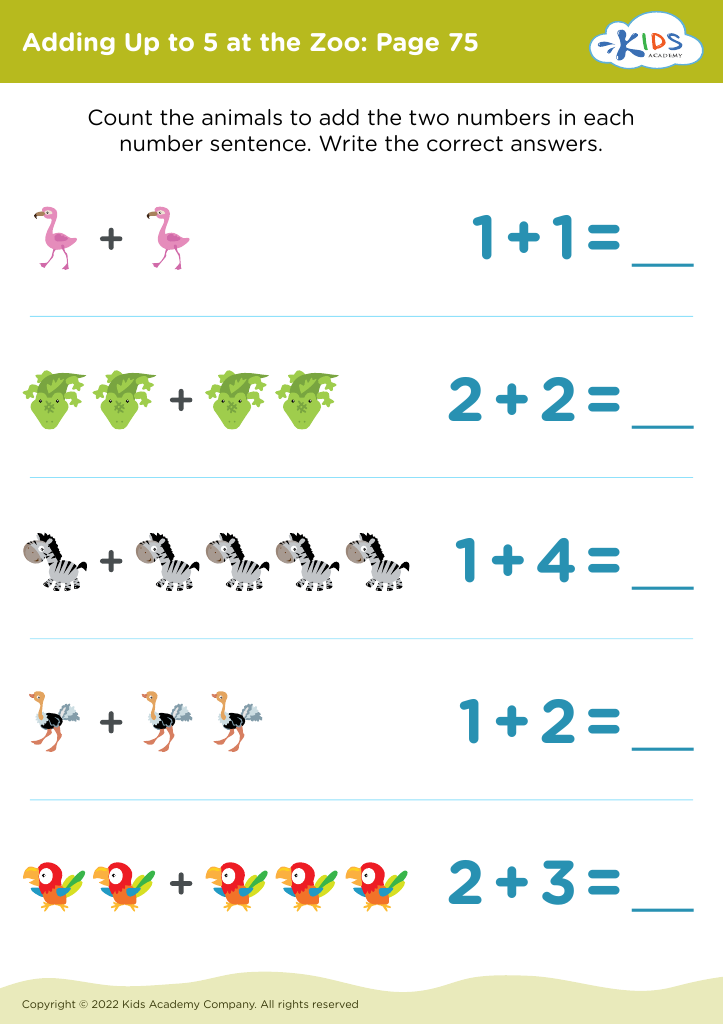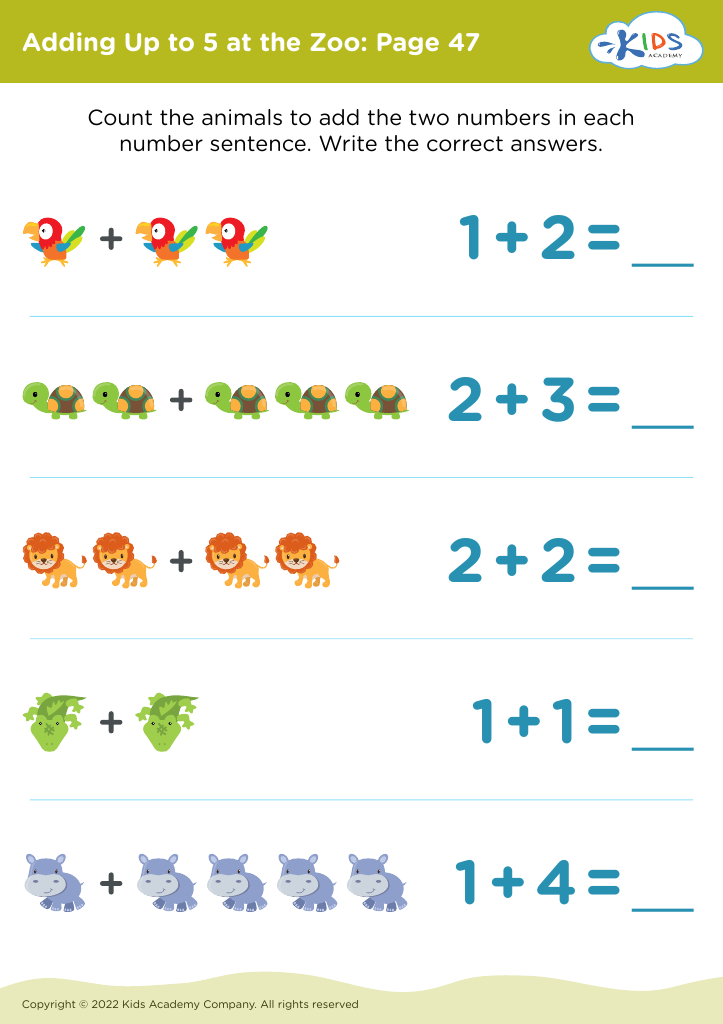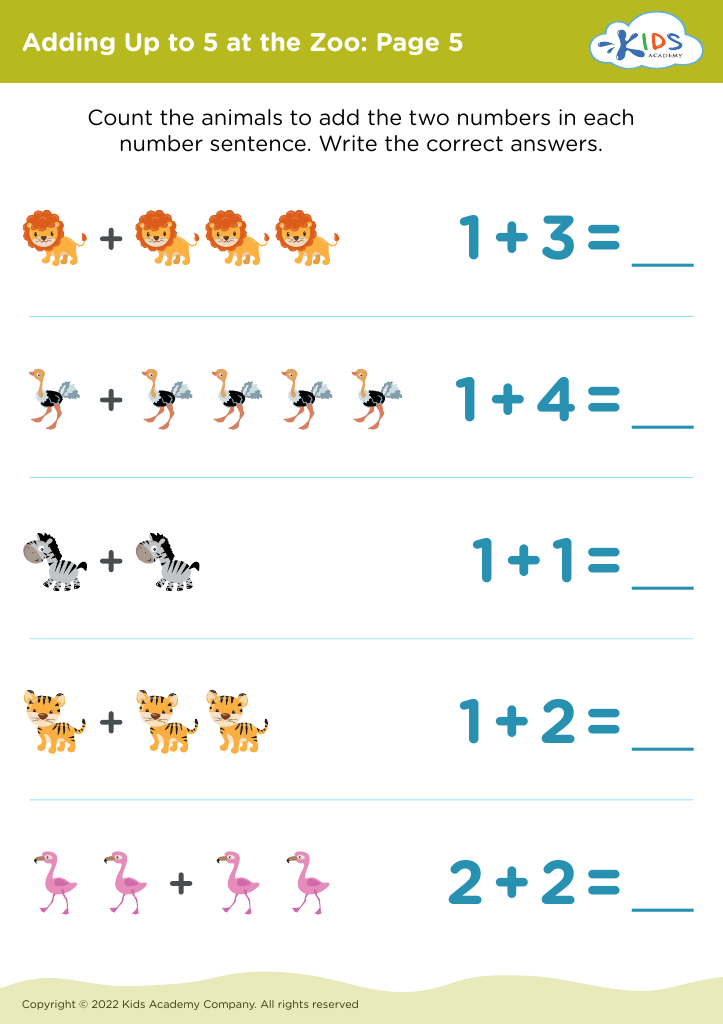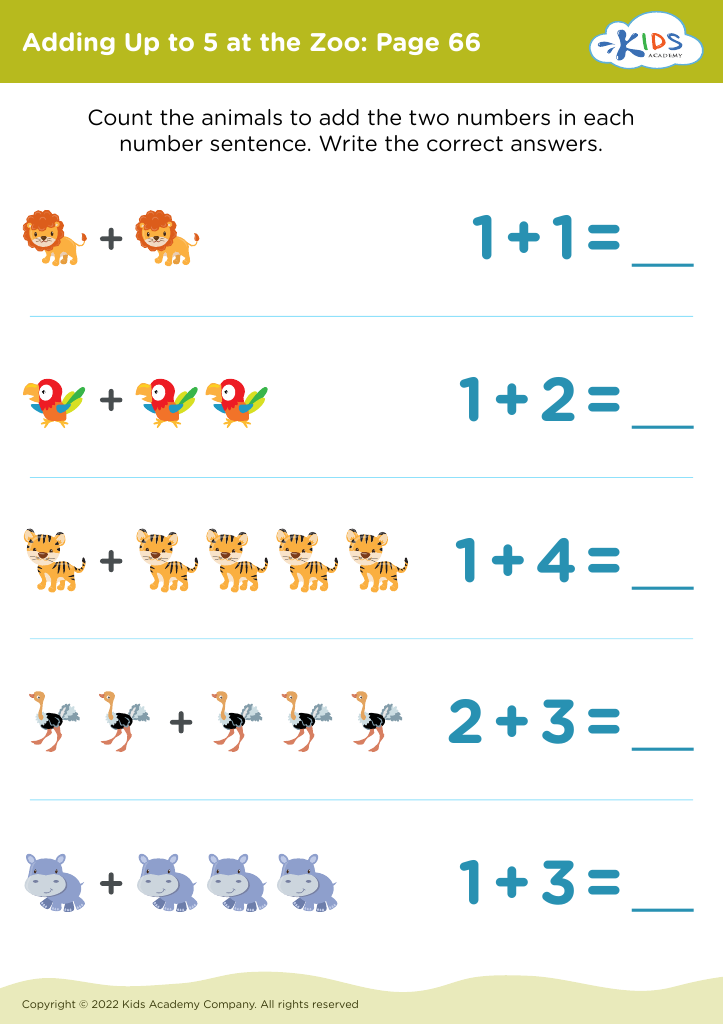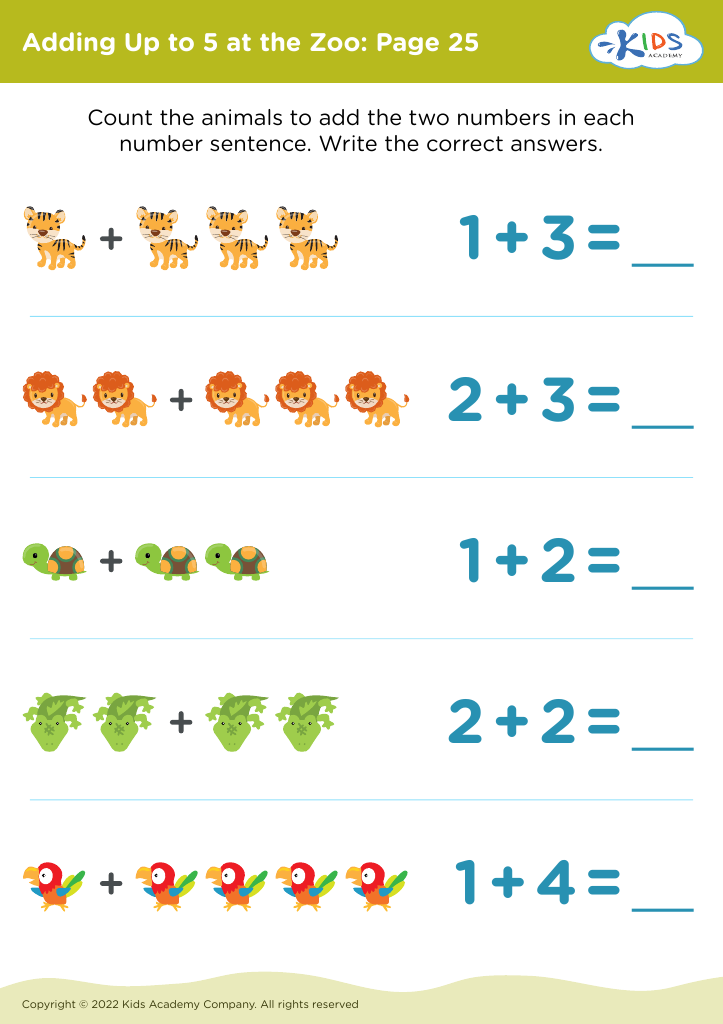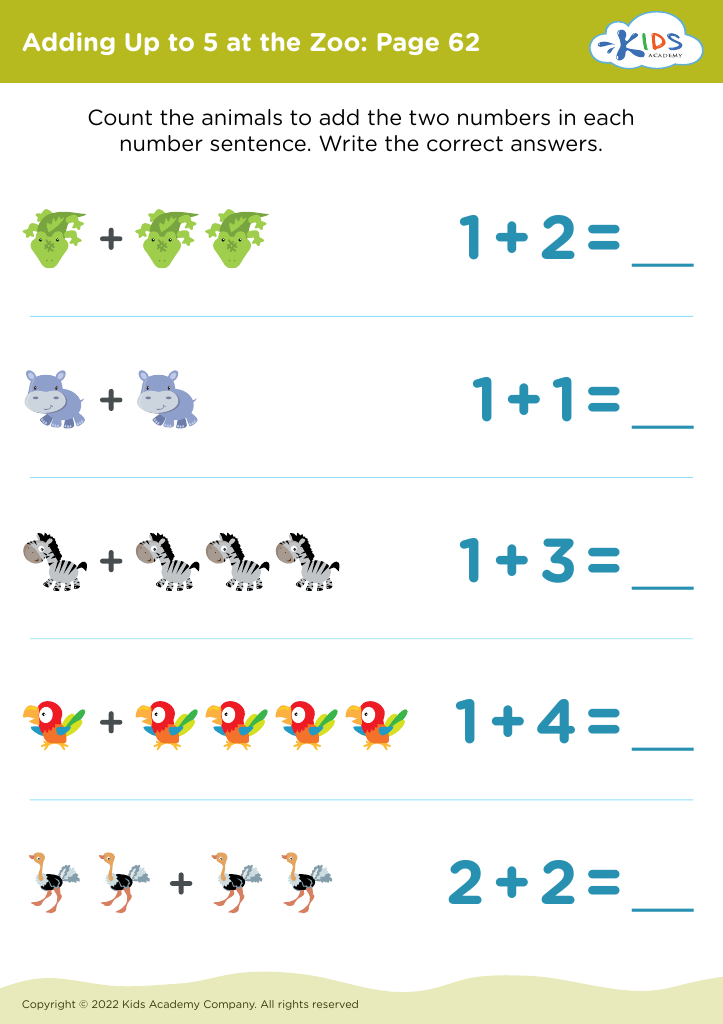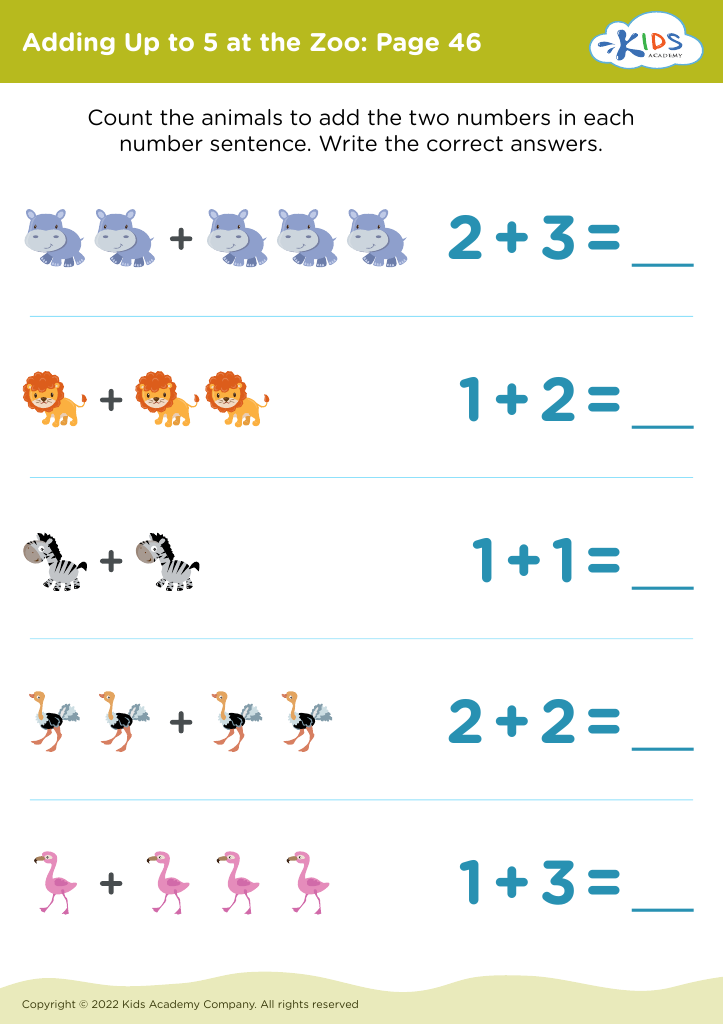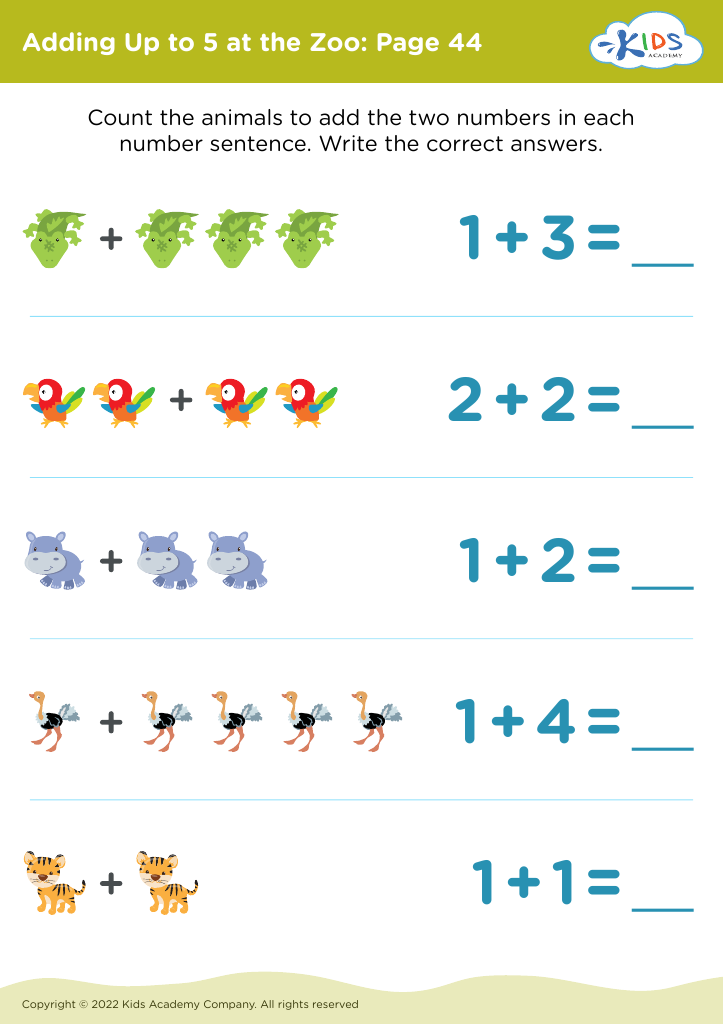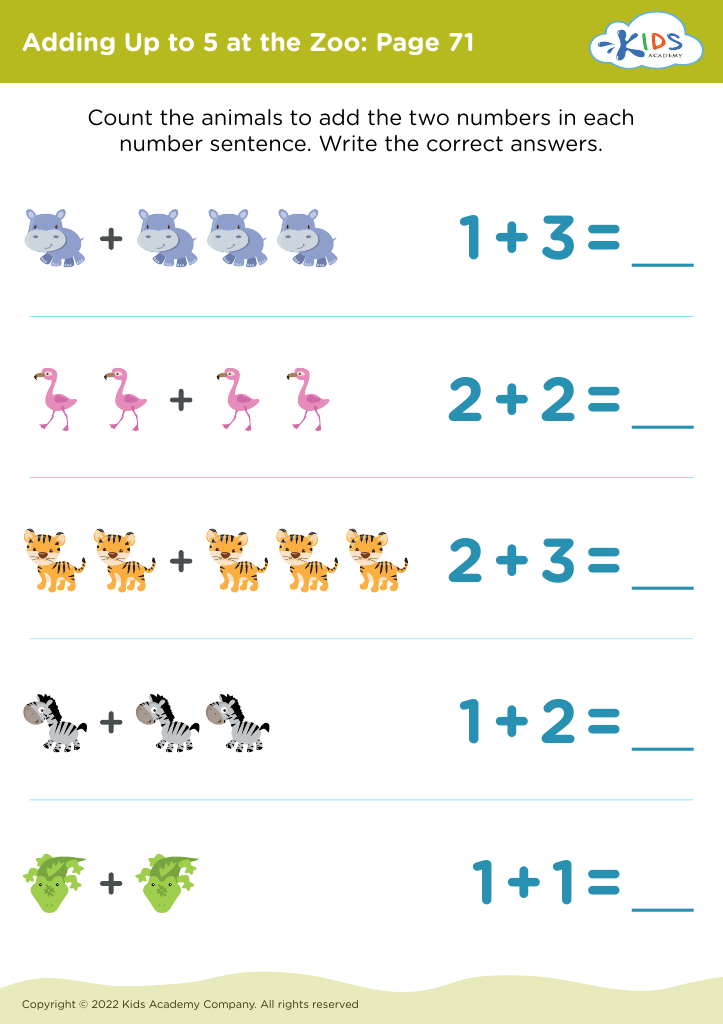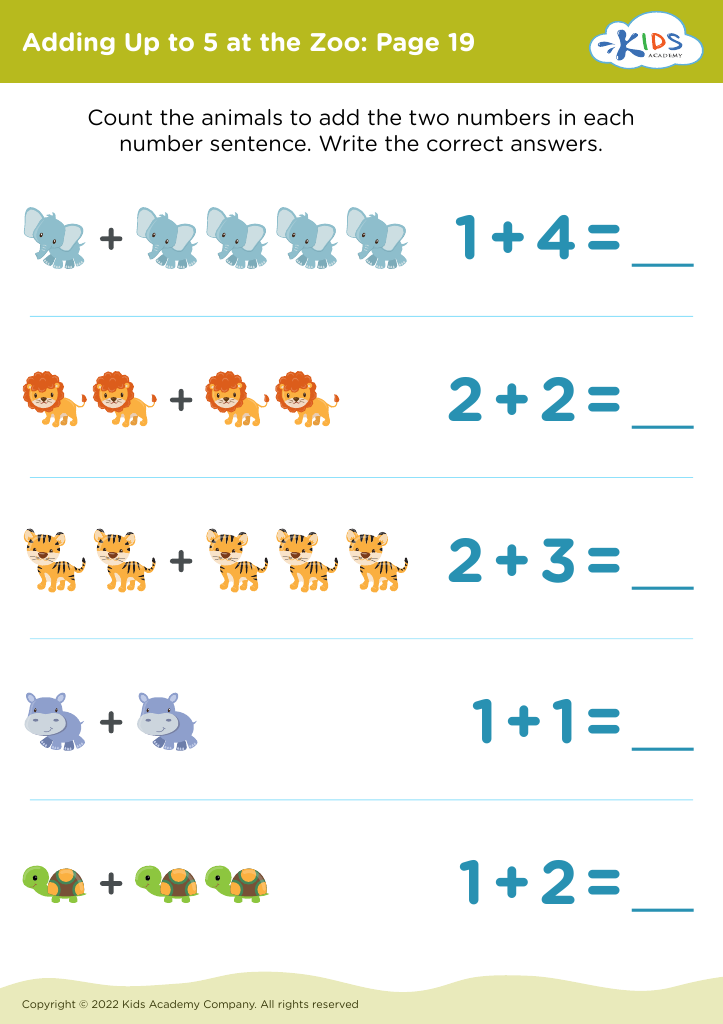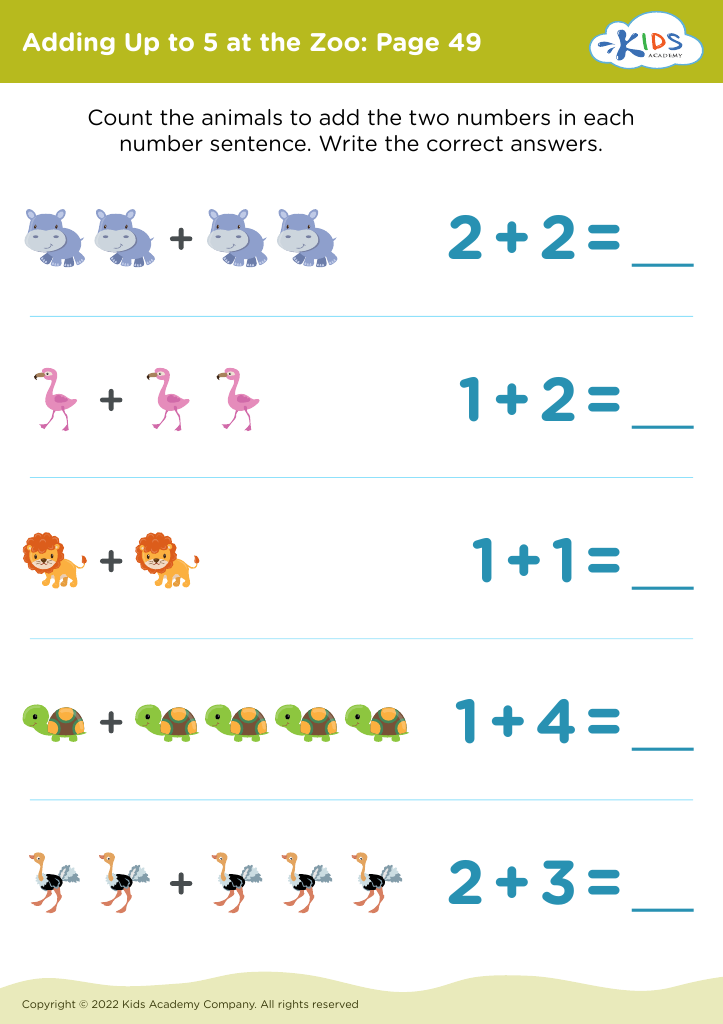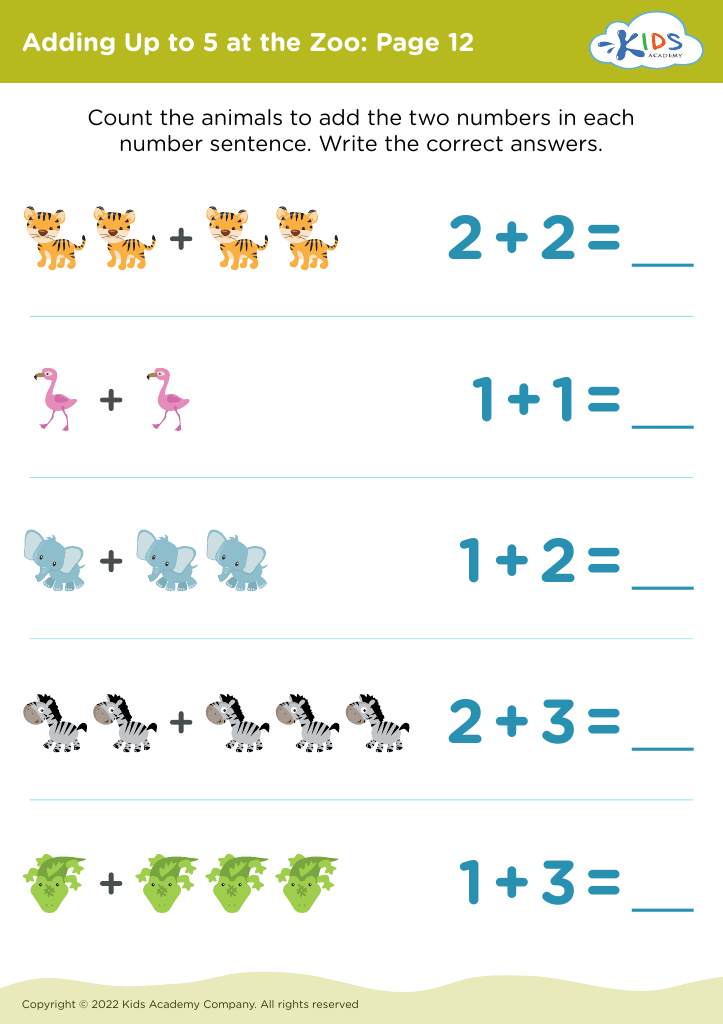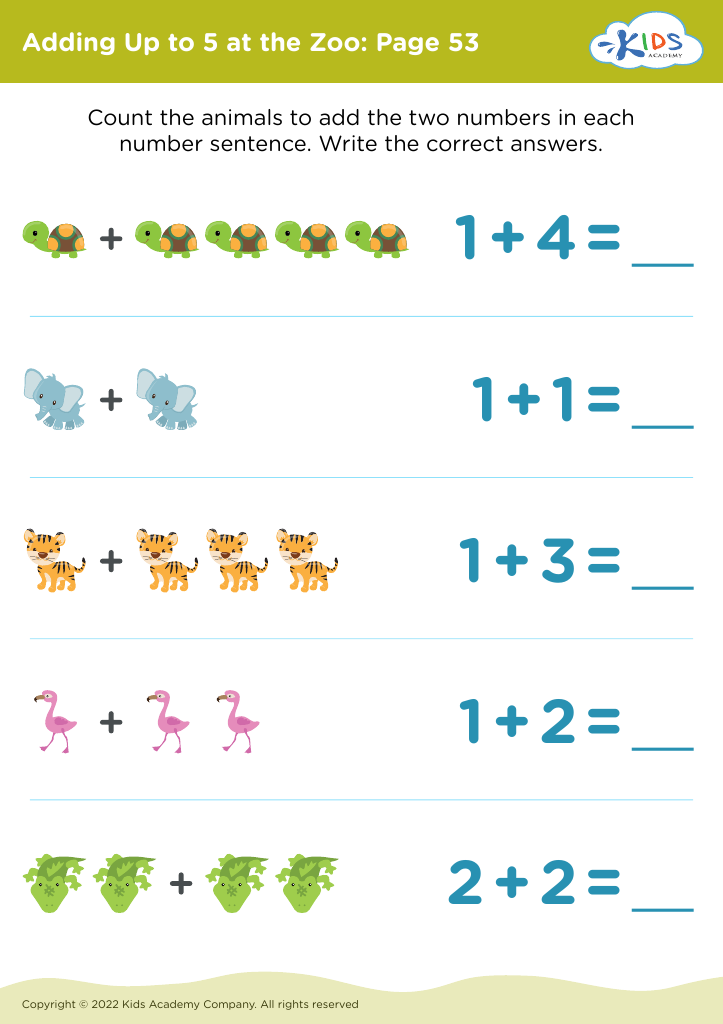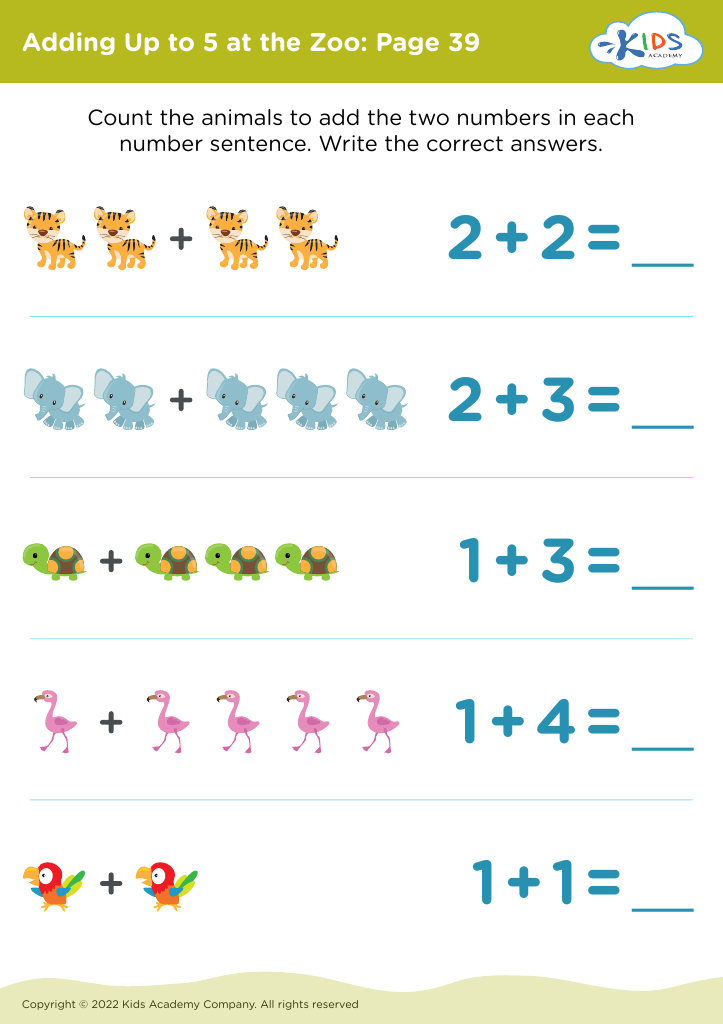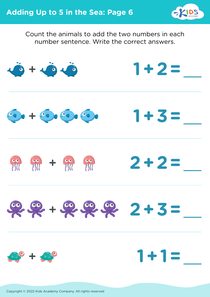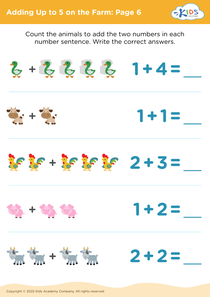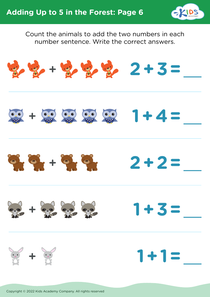Addition skills Adding at the Zoo Worksheets for Ages 3-8
20 filtered results
-
From - To
Enhance your child's addition skills with our engaging "Adding at the Zoo" worksheets designed for ages 3-8. These fun and interactive worksheets use a vibrant zoo theme to capture young learners' interest while teaching them the fundamentals of addition. Children will happily solve simple math problems featuring various zoo animals, helping to build their confidence and math proficiency. The worksheets promote critical thinking, number recognition, and early counting skills in a playful manner, making learning enjoyable. Perfect for classroom use or at home, these worksheets are an excellent resource for parents and educators looking to strengthen numerical understanding through delightful activities.
Addition skills are foundational to early mathematics and critical for children aged 3-8, especially in playful contexts like "Adding at the Zoo." First, mastering addition helps children develop problem-solving skills and logical thinking. By incorporating zoo animals into addition exercises, teachers and parents can create engaging scenarios that relate to the child's world, enhancing motivation and enjoyment.
Moreover, learning addition skills fosters numerical fluency, empowering kids to tackle more complex mathematical concepts later on. It supports cognitive development, as children begin to understand the relationship between quantities, promoting spatial awareness and analytical skills. Furthermore, social interaction often accompanies group activities, allowing for collaborative learning experiences, where children can practice sharing information and problem-solving together.
In a playful setting like a zoo, where kids naturally have curiosity about animals, addition problems involving pandas, lions, or elephants can make learning relatable and fun. This connection leads to better retention of concepts.
Ultimately, parents and teachers who emphasize early math skills like addition help build a strong educational foundation, enhancing children's confidence and preparing them for future academic success. Encouraging playful, context-rich ways to learn math can ignite a lifelong love of learning and curiosity in young minds.
